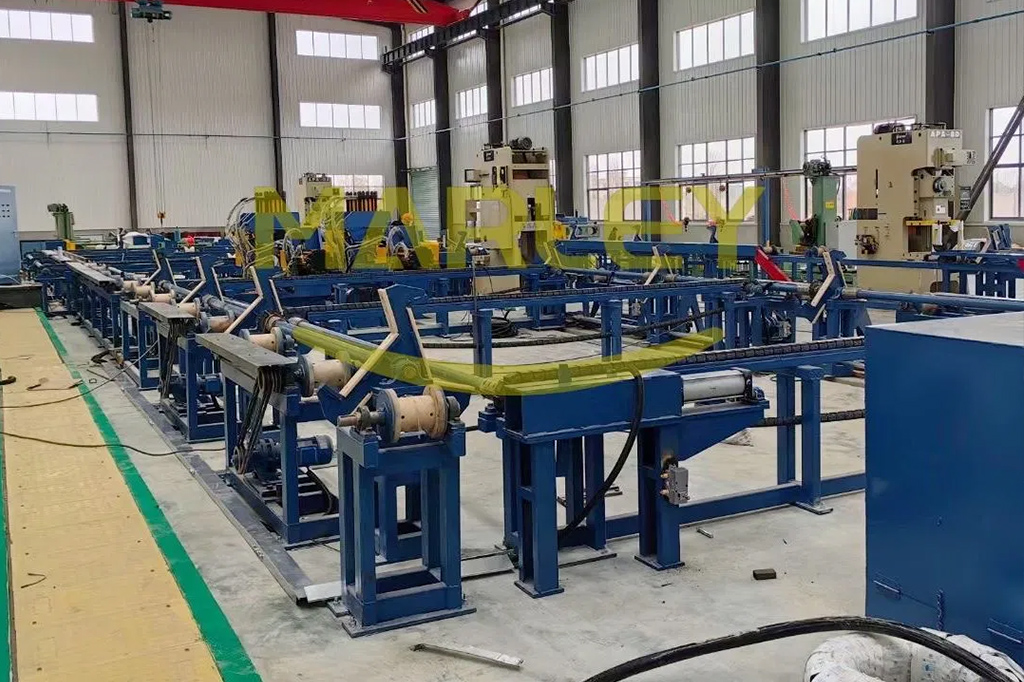When you’re manufacturing steel pipes for high‑pressure environments—whether in oil & gas, chemical processing, or large industrial installations—you quickly realise one thing: not all machines are created equal. Picking the right machine to make those pipes isn’t just a nice‑to‑have—it’s a fundamental decision that affects safety, performance, cost, and reputation.Here’s why getting the machine right matters, and what you should keep in mind.
1. The stakes are high
High‑pressure applications place extreme demands on pipe materials, wall thicknesses, weld integrity, dimensional precision and internal finish. If the machine producing those pipes is under‑specified or mismatched, then the risk rises: leaks, bursts, warranty claims, downtime, even danger to personnel. In other words, the machine isn’t just equipment—it’s part of your quality assurance.
2. Production efficiency and cost control
A well‑chosen machine can boost throughput, reduce scrap, minimise set‑up and downtime, and optimise yield. For instance, a pipe‑making machine that’s correctly sized for your production volume, pipe diameter, wall thickness and material will run more smoothly and with fewer hiccups than one that is stretched beyond its comfort zone. One guide for tube mills notes: “Choosing the right tube mill / pipe making machine is a critical decision that affects your production efficiency and product quality.” When you buy the wrong machine, you end up paying more: more rejects, higher maintenance, slower output, and in high‑pressure applications that cost can multiply.

3. Material and specification compatibility
High‑pressure pipes often require heavier wall thicknesses, stronger materials (for example certain stainless steels or high‑strength alloys), tighter tolerances, and higher weld quality. The machine must be capable of handling those requirements. In a general equipment selection article, the first step is: clarify your production needs—pipe type, size, wall thickness, production speed and budget. If you ignore that, you risk mis‑machinery mismatch: the machine cannot deliver the precision or strength you need.
4. Safety and regulatory compliance
When pipes are intended for high‑pressure systems, the machine’s output must meet strict standards. If the machine is poorly chosen (e.g., lacking proper tooling, not designed for the intended material or size range), you might end up with non‑compliant product. In another article about buying a fusion machine, for example, safety, quality and data logging capability were emphasised. The machine itself becomes part of the compliance chain. Choose the wrong one and you jeopardise safety or face regulatory knock‑backs.
5. Long‑term flexibility and growth
You might build for today’s spec, but high‑pressure applications often evolve: larger diameters, heavier walls, new alloy grades, different service conditions. A machine chosen purely for “today’s need” may limit you tomorrow. Good guidance emphasises not only current capacity but future production goals.
6. Features that really make the difference
What kind of machine should you be looking at? Here are some features that matter especially for high‑pressure pipe production:
|
Feature |
Why it matters |
|
Material compatibility (steel grade, wall thickness) |
The machine must handle your toughest spec reliably. |
|
Precision tooling & control |
High‑pressure pipes demand tight tolerances; machine must deliver repeatably. |
|
Automation / control systems |
Reduce human error, improve consistency. |
|
Maintenance / service support & spare parts |
A machine that’s down costs heavily; the right one keeps you running. |
|
Scalability/flexibility (diameter range, wall thickness range) |
You don’t just produce one size forever—future demands may grow. |
|
Energy efficiency / operational cost |
High‑pressure production often uses more material, process energy—machine efficiency helps cost control. |
7. Reputation, credibility & market trust
Especially if your company supplies high‑pressure steel pipes for demanding markets (for example oil & gas in Middle East or industrial piping in India/Southeast Asia), the machine you use influences your credibility. Clients ask: “How do you ensure quality? What is your machine capability?” A lesser machine means more risk of defects, returns, and reputational damage. A proper machine becomes part of your value proposition.